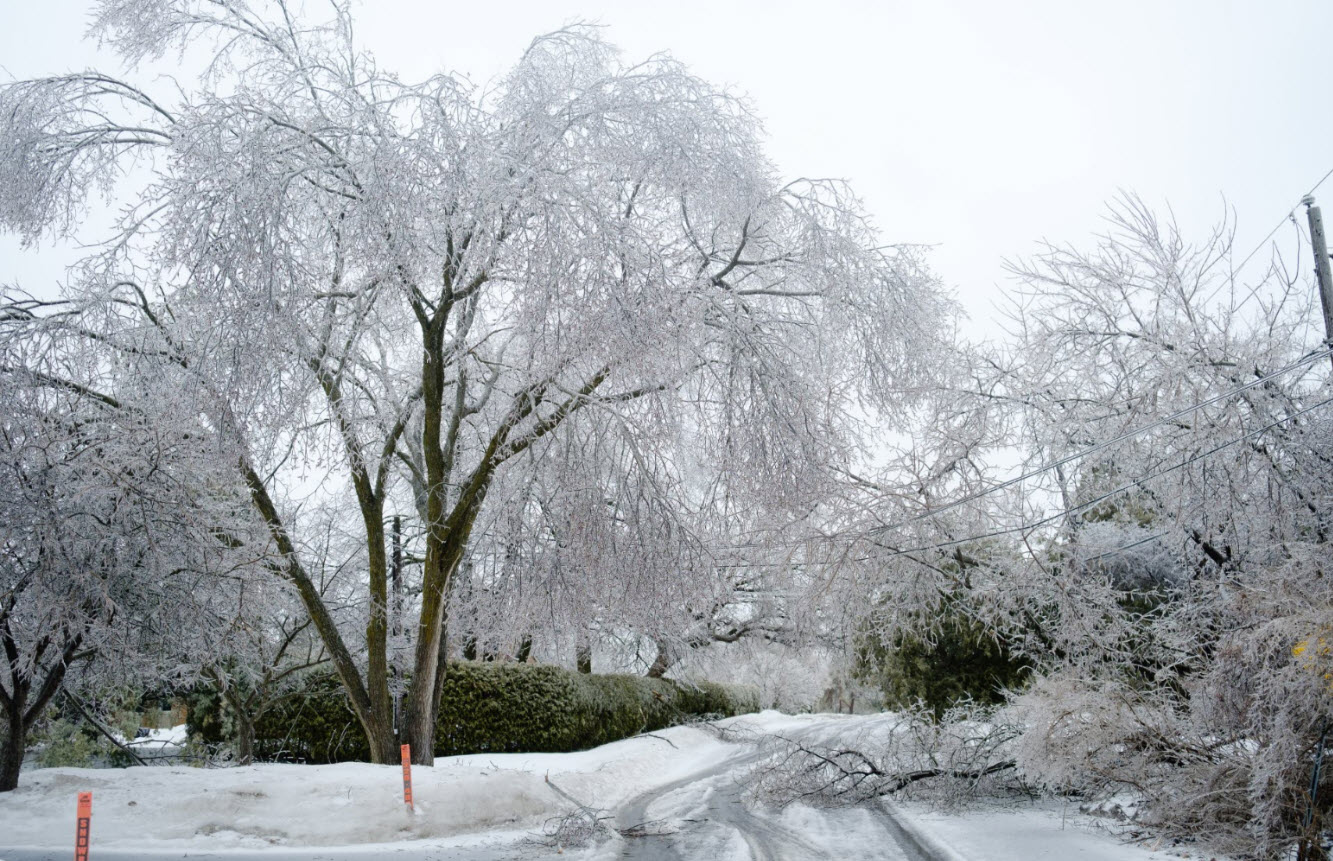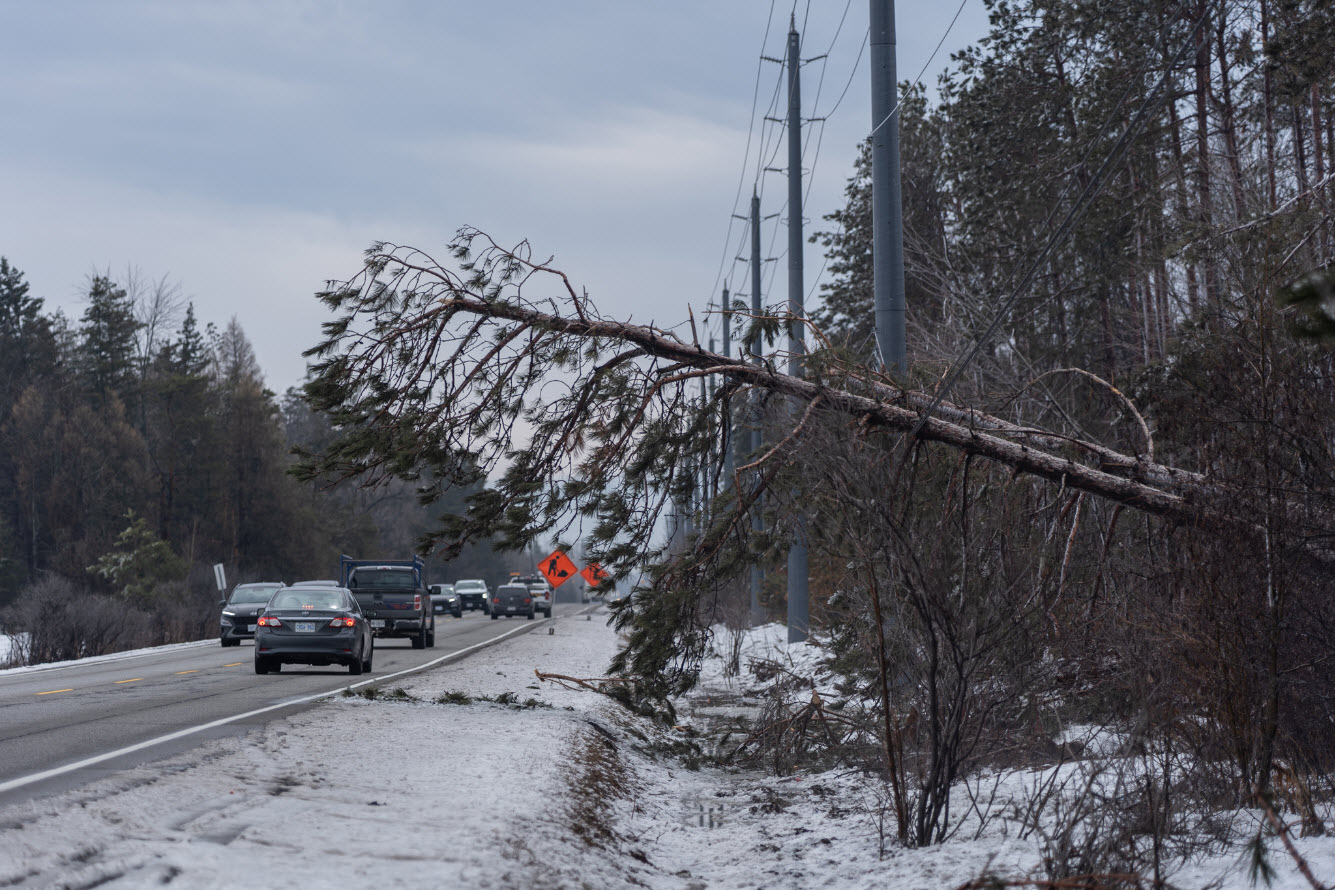After living through three months of winter, it’s not surprising that we are ready to break out the flip-flops and do a happy dance when the mercury rises above the 10 degree Celsius mark.
Spring flowers and April showers can also be accompanied by an increase in sudden weather events (like April’s recent ice storm). While our crews are on stand-by for the possibility of a storm or an unexpected outage, residents also have a valuable role to play by being prepared for spring storms.
May 7-13 has been designated as Emergency Preparedness Week, a national event supported by Public Safety Canada. This special week encourages Canadians to be prepared for possible emergencies by having a plan in place. If you have been meaning to create a family emergency plan but are not sure where to begin, Hydro Ottawa has you covered. Just visit the Emergency Preparedness page on our website to access emergency kit checklists, sample emergency plans, and more.
Before the storm: How you can prepare
When it comes to storm readiness, the Scouts and Girl Guides have the right idea: be prepared. As such, Hydro Ottawa monitors weather patterns minute-by-minute, and if we’re confident a major weather event is going to hit our area, we send a Weather Watch email to customers with some tips on how to get ready.
While we can’t control Mother Nature, we can do our best to be as prepared as possible. Having a storm readiness plan in place can save valuable time if severe weather strikes. It can also provide you with peace of mind. While most power outages will be over shortly after they start, some can last longer and rise suddenly. Having an emergency plan in place can greatly lessen the impact that a severe weather event can have on your family. Resiliency begins at home.
One of the best ways to prepare for a multi-day power outage – especially if you live in a rural area – is to have an additional energy source in place which you can control. A backup generator can provide the power needed to keep the lights on, your food cold, and your devices charged. There are a number of generators that you can choose from, depending on your budget and the power requirements to keep your key appliances and devices energized. Generators are meant for outdoor use and portable generators should never be used indoors, as the exhaust fumes from the device can be harmful.
A battery-powered sump pump is also an excellent device to have on hand in case of emergencies, particularly if your house has a basement and is susceptible to flooding during heavy rains and storms. While battery-powered sump pumps can help prevent costly water damage during short outages, it is important to have a longer-term back-up plan in place (like a generator) for outages that last beyond 72-hours. In the event of a flood, do not enter your basement unless you are sure the power is disconnected.
During the storm – Your priority is safety
If a storm warning is issued, your first priority is to take shelter. Lightning is the most common danger associated with spring and summer storms. As soon as you see lightning or hear thunder, seek shelter. If you are at home, close all windows and doors. If it is safe to do so, secure loose outdoor objects or move them inside. Stay calm and follow your plan.
While it is always best to not travel through a major storm, sometimes this can’t be avoided. If you are in your car, open the windows slightly and park off the road with your brakes set, away from tall objects and power lines. Do not leave your car if there are downed power lines nearby. In the event of a tornado, abandon your vehicle and move at a right angle to the storm’s path. If this is not possible, find a low-lying area, like a ditch and lie flat.
After the Storm - How you can help
If an outage occurs in your area and you don’t see it on our outage map, the best thing to do is to report it. You’ll be helping your community and our crews who may not yet know about the full extent of the outage. Call our 24/7 outage hotline at 613-738-0188 or report your outage online through your MyAccount portal.
If Hydro Ottawa crews are on the scene in your neighbourhood, follow these tips to ensure safety for you and our crews:
- Take extra precautions near our working crews. Keep a good distance from all equipment, especially while it is being operated.
- When walking near designated work areas, ask for assistance if you are unsure or need assistance.
- Follow all signage and instructions from workers (if present).
- Drive in designated areas only and keep a safe distance from Hydro Ottawa crews. They’re working hard to restore your power.
Spring storms, like an uninvited guest, can show up suddenly. Being prepared, with a plan in place, and a kit that can provide you with a minimum of 72-hours of basic relief, is time well spent.
Win an emergency kit
Follow us on Instagram and during Emergency Preparedness Week (May 7-13), we’ll share more emergency safety tips, and as an added bonus, you’ll have a chance to win one of 50 starter emergency kits. More details about this giveaway will be shared in the coming days on our Instagram account, so watch that space to find out how you can win.
For more information and related topics, read our recently published blogs:


